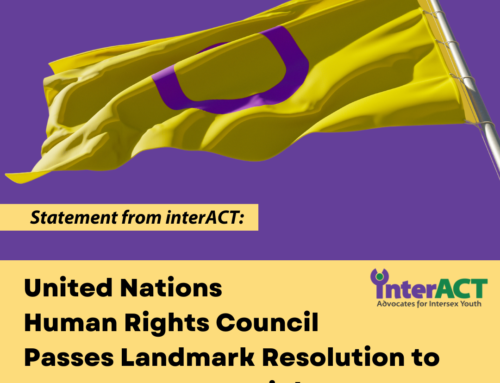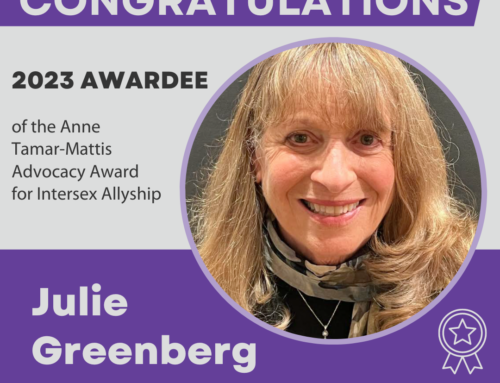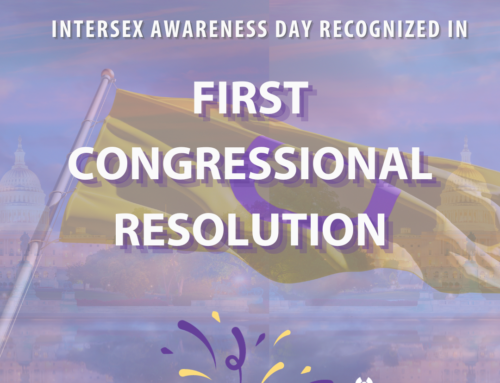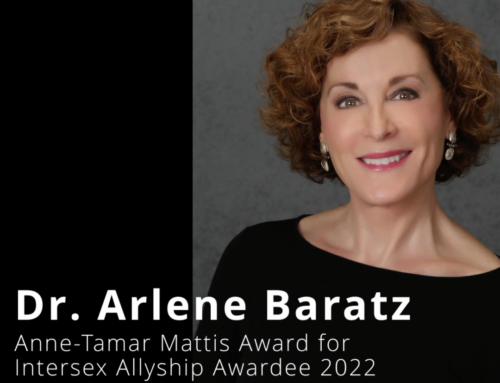While Julie Greenberg does not identify as a person with intersex experience, her commitment to the intersex community has been monumental. Julie is a law professor, legal expert, and founding board member of interACT, with decades of experience advocating for intersex populations. She is the author of the book Intersexuality and the Law.
Julie attributed her initial inspiration to become involved with intersex issues to Sherri Morris, a lawyer and her former student. Sherri came out to Julie as intersex and expressed her concerns for the lack of reporting on the legal aspects of issues affecting intersex people. Sherri taught Julie about intersex conditions which led to an article in the Arizona Law Review in 1999 titled Defining Male and Female: Intersexuality and the Collision between Law and Biology. Julie continued to write other articles and a book and started getting invited to deliver intersex-related talks. Julie also published pieces for the now-defunct Intersex Society of North America (ISNA).
Bria Brown-King is an interACT Youth member who completed a communications internship before being hired on as a full-time Program Coordinator. While interning, Bria had the opportunity to interview Julie Greenberg about her vision for the future of intersex law and policy.
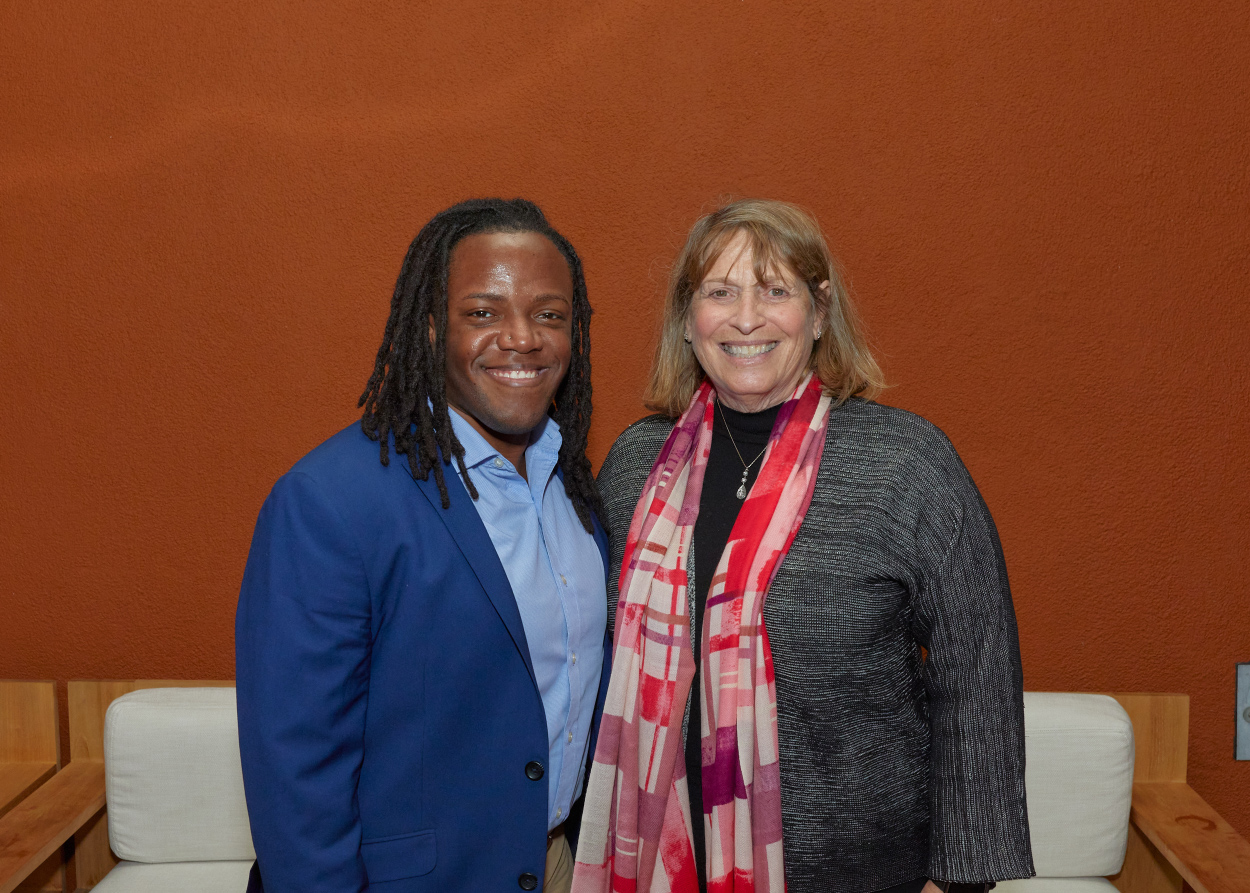
Bria Brown-King and Julie Greenberg at the California capitol, after both testified in support of a bill to give intersex people their own choices about their bodies.
How long have you been involved with interACT and what inspired you to get involved?
I have been involved with interACT since its founding days in the early 2000’s, starting as an advisory board member.
My experience overall has been fun and inspiring. For me, it started out as an intriguing legal and policy issue and then it became an issue of the heart. It pretty much defined my scholarly legal writing for the last twenty years. The way it worked out was pure serendipity.
What are some of your responsibilities as a board member?
My responsibilities as an interACT board member include crossing the T’s and dotting the I’s to ensure the board is adhering to their fiduciary duties and fulfilling the mission of the organization. I also have a background in corporate finance and finalizing budgets. Having a lawyer on the board is beneficial.
What challenges do you encounter in your work as a board member?
There are a lot of external challenges. I’ve been asked to speak to medical communities, some have been willing to listen and hear what our organization is saying and some have been unwilling to listen. There is also a lot of resistance from the medical community.
What do you enjoy the most about serving on the interACT board?
I never lobbied or testified before, but I enjoy having new experiences. I find it very rewarding to work with the individuals at interACT. Because I have retired from my law professor position, I am able to focus on the work that I’m passionate about. It’s become a part of who I am. I’ve dedicated my personal and professional life to issues affecting the intersex community.
One of the things that has been very rewarding has been the cooperation between the transgender legal community and the intersex community. I’ve been really proud of the way that both groups understand that our issues aren’t exactly the same, but we are careful about ensuring that legal positions that one group advances will not inadvertently harm the other group.
What do you enjoy the least?
The frustration of trying to change the hearts and minds of people who don’t want to listen.
Do you have any predictions for what’s to come, in terms of intersex-related policies or legislation that people should be aware of?
I think that everything is moving in a positive direction. I believe that additional legislative bodies will take up the issue. Also, I think that more young doctors understand the issues and will help us to move the issue forward in the medical community. I feel positive about the future. The younger generation gets it, but I don’t know how long it will take.
We have a fairly small staff at interACT and there’s a lot of work to do. I really do foresee that we will accomplish our goals; the real question is “how long will it take?” People are much more aware and most people seem sympathetic to what we are dealing with.
How has your work with the intersex community affected your career as a law professor ?
It’s become a part of who I am. I’ve dedicated my professional life to issues affecting the intersex community.
If you could do it all over again, would you choose the same path for yourself?
Absolutely!
Do you have any final comments you’d like to add?
Our community has accomplished so much with limited funds and staff. I hope that we can enhance our funding so that we can continue to build on the amazing progress that we have already accomplished.
We want to see the future Julie sees. If you can, please consider a donation to help keep interACT’s work moving forward.

